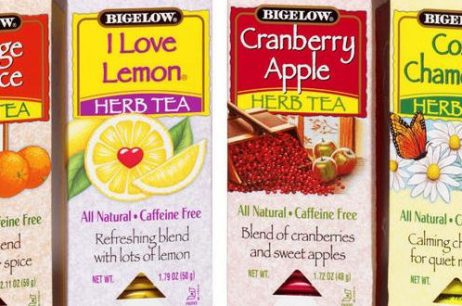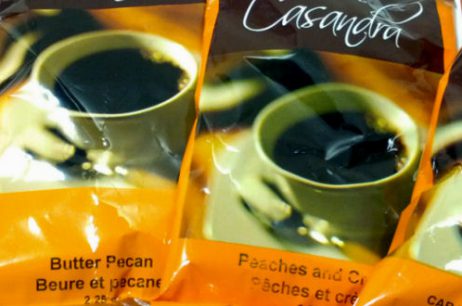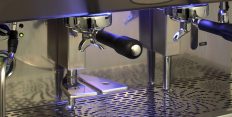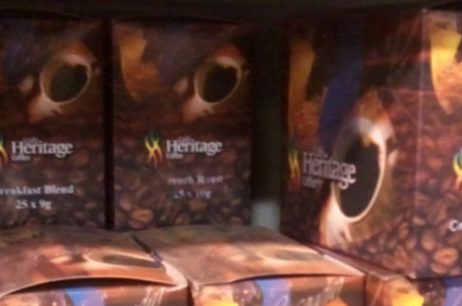-
Headquarters -
8-97 Bessemer Road, London, Ontario, N6E 1P9
-
Year established -
1980
-
NAICS -
311920 - Coffee and tea manufacturing
-
Major expansions -
N/A
-
Employees -
50
-
Exports -
US, EU, South Korea
-
Download -
Heritage Coffee Company
Heritage Coffee Company operates coffee roasting and dry powder blending facilities in London, Ontario with distribution centres in Montreal, Québec and Vancouver, British Columbia.
“There aren’t many companies of our size in the coffee business,” says chief operating officer of Heritage Coffee Co. Ltd. Brian Martell. The coffee roasting industry has long been dominated by large multinational suppliers (such as Nestle and Folgers), with minute niche roasteries serving a small population of discerning customers. However, due to its strong workplace culture, excellent customer relationships, and innovative practices and technology, Heritage Coffee Co. Ltd. (Heritage) has remained an extremely successful mid-size roaster that continues to grow.
Founded in London, Ontario in 1980, Heritage grew from a small regional roaster with seven employees to a firm that now employs over 70 staff nationally, both at its London roasting plant and at two distribution centres located in the Montreal and Vancouver areas. A further indicator of the company’s consistent growth is the fact that its London plant has outgrown its original 4,000-square-foot facility, and now requires a 36,000-square-foot space. Heritage has also expanded its product line considerably, manufacturing soluble products (such as powdered hot chocolate) as well as biodegradable coffee pods for use with single serve machines. Heritage’s diverse offerings have gained traction with customers worldwide, with 20 to 25 per cent of the company’s products being exported internationally, to countries such as Germany, Poland, South Korea, and the United States.
The vast majority of Heritage’s business (80 to 90 per cent) is comprised of “private label” customers; this arrangement means that rather than selling directly to the end consumer, Heritage puts together a customized product for another company, tailored to its branding and specifications, and this second company then brings the product to retail. When asked how Heritage has had such great success in retaining and growing its customer base, both Martell and Heritage’s general manager, Farid Abdelnour, emphasize the importance of openness and trust.
As Abdelnour explains, Heritage has deepened its relationships with many private label customers by means of a “strategic alliance,” where both companies support each other in their goals and grow symbiotically over time.
Heritage’s people-focused philosophy also extends to its employees. The value of Heritage’s human capital is high, with over 40 per cent of employees having worked in the coffee industry for over 10 years. While employees possess a diverse range of backgrounds and skill sets, a common quality valued at every level in the organization is creativity. Martell and Abdelnour stress how important it is that management remain receptive to employees’ insights on how to make the production process more efficient. In addition, most managers are promoted from within rather than hired externally, demonstrating Heritage’s strong dedication to its people.
Another pillar of Heritage’s business is its focus on product quality. The firm makes a continued effort to research and implement innovative quality control measures at every step of the production process. As a company who caters to very discerning customers, producing a consistently high-quality product is integral to Heritage’s goals of maintaining existing customer relationships and continuing its growth. As such, the company is very invested in testing its coffee for quality, and possesses a range of lab facilities. Over 70 per cent of the bean samples that Heritage receives are rejected, indicating Heritage’s high standards.
Heritage’s new range of coffee pods displays its capability to innovate, as well as its competitiveness. In response to a large spike in demand from customers and the market at large for single-serve coffee pods (in alignment with the introduction of single-serve pod machines like those from Keurig and Tassimo), Heritage has developed a new biodegradable pod that can be customized to the customer’s size specification and private label branding requirements. The pod is made out of a highly biodegradable plastic that takes only three to four years to decompose, whereas regular plastics (such as those used in a standard packaging) can take over 400 years.
Despite its many competitive advantages, Heritage still faces considerable internal and external challenges. Internally, the company is outgrowing its existing London plant. Martell and Abdelnour express their concerns about maintaining the company’s close-knit culture with growth. However, they are dedicated to prioritizing company–employee relationships as Heritage continues to expand.
Externally, one ever-present challenge is the need to compete by being nimble and dynamic in response to niche customers’ needs. Yet, Heritage’s ability to achieve consistent growth in this competitive marketplace illustrates that they have been determined to overcome this challenge thus far, and will continue to in the future.
Heritage makes use of Export Development Canada’s programs to advance their capabilities and marketing strategies for sales abroad. While Martell believes that the Scientific Development and Experimental Development (SR&ED) tax incentive program is valuable, recent changes to the program have made it less of a fit for Heritage’s business.
Going forward, Heritage’s strategic priorities are to continue expanding its coffee pod business, and to explore the possibility of developing its own retail products. Despite the challenges it faces, Heritage possesses high adaptability to the changing nature of the industry, a strong internal culture, and healthy relationships with its customers and suppliers. As such, the company’s success and growth seem certain to continue for many more years.
For more information about Heritage Coffee Company, visit their website.
Published: May 2, 2017
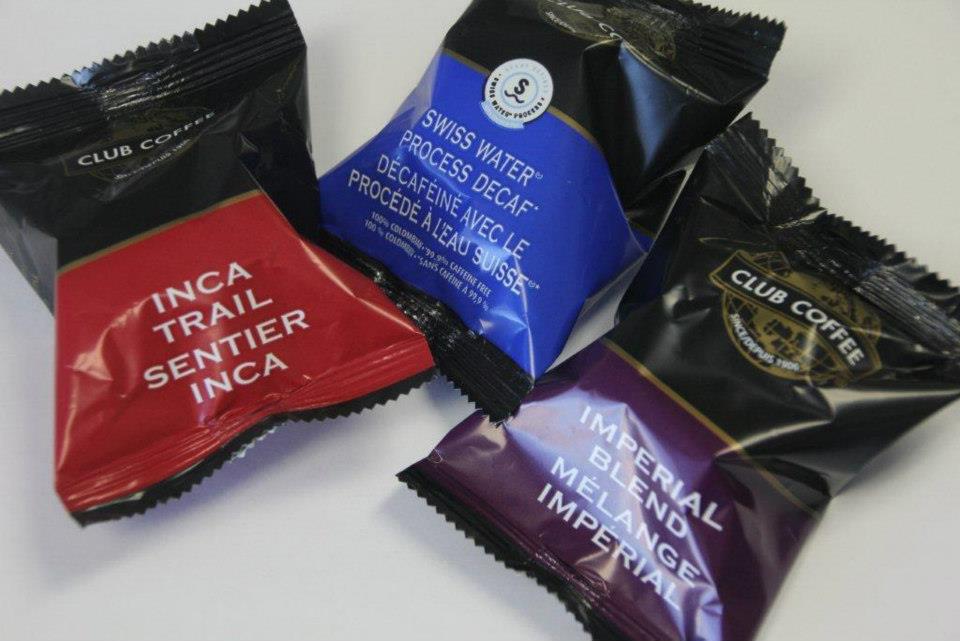
Club Coffee
Club Coffee is a manufacturer of coffees, teas and hot beverages. The firm developed the world’s first certified 100 per cent compostable single-use coffee pod, designed for use in the most common Keurig® brewers.

TWI Foods
TWI Foods is a manufacturer of high-quality specialty food items such as cake-rusks, cookies, cakes & frozen food items. It caters to the South Asian ethnic populations in Canada and worldwide.

Sweets from the Earth
Sweets from the Earth is a family-owned, vegan specialty baked goods manufacturer with over 150 types of desserts produced.
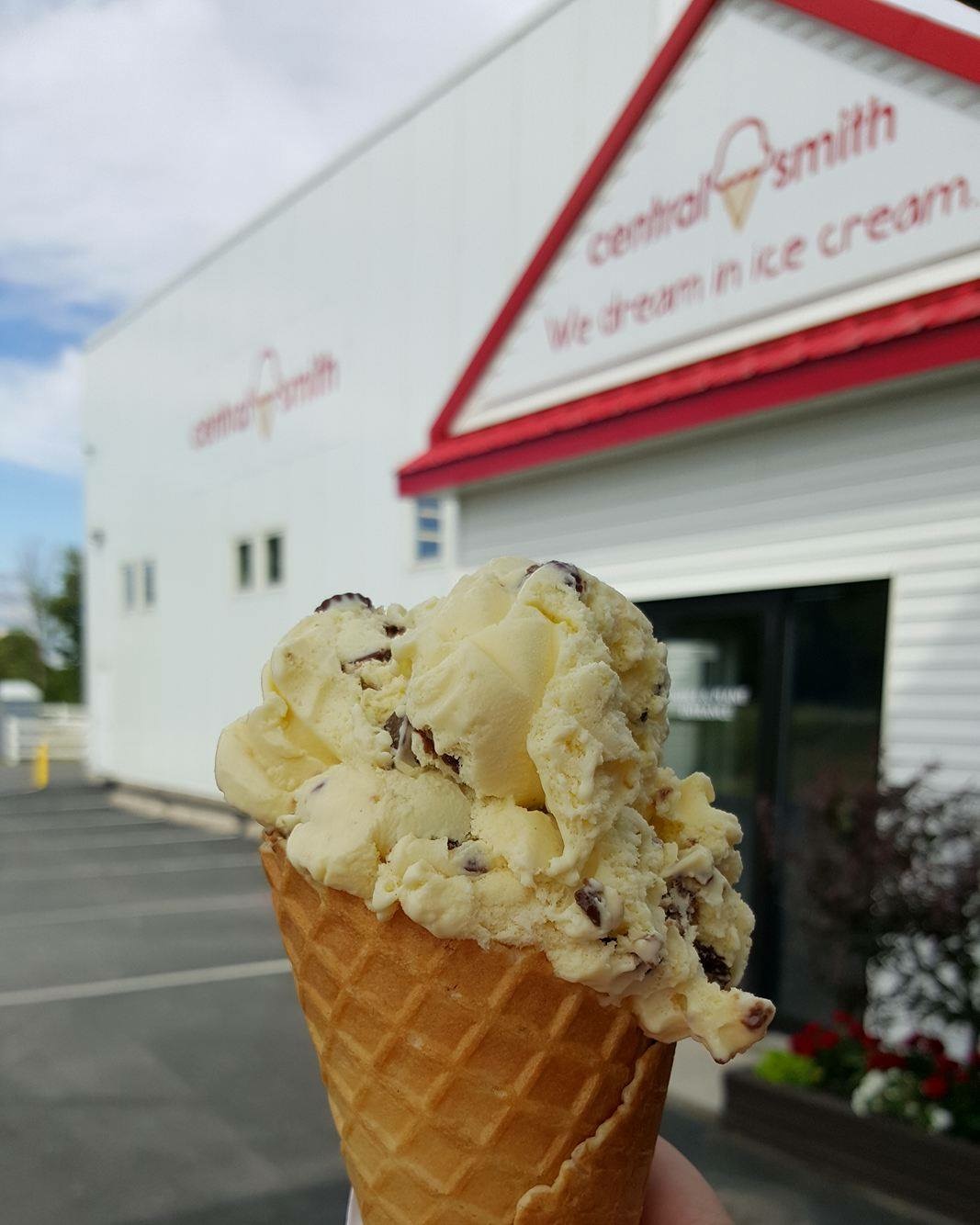
Central Smith Creamery
Central Smith Creamery manufactures a variety of frozen desserts, including ice cream, sorbet, frozen yogurt, and sundaes.
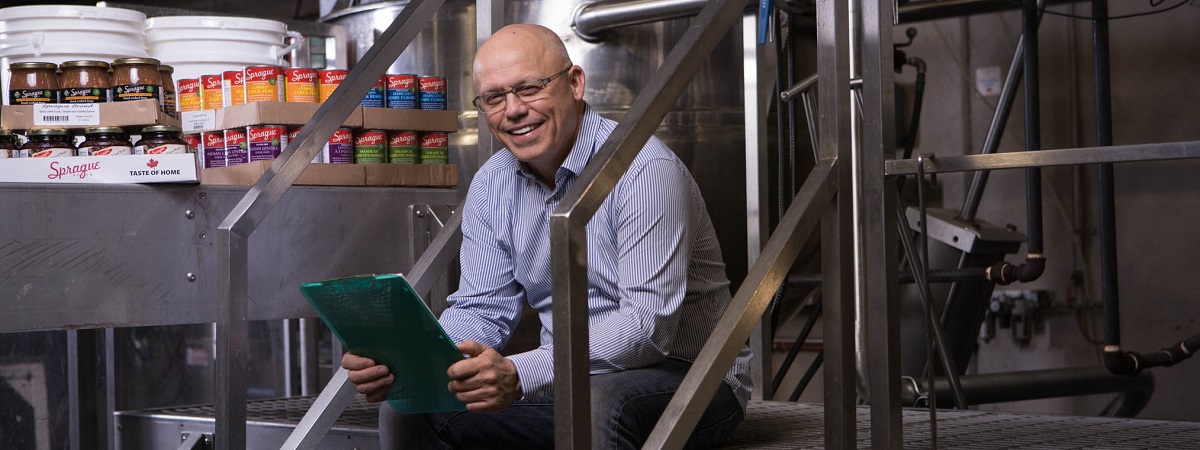
Sprague Foods
Sprague Foods Ltd. is a canned and jarred food manufacturer located in Belleville, Ontario. It manufacturers food for private label consumers, as well as under its own brand name: Sprague Foods. Some of its most popular products include soups made from beans and lentils, rice pudding, and gourmet tomato sauces. Its highly-automated 33,000 square-foot facility frequently fulfills food safety standards implemented by the Food and Drug Administration (FDA) and the Canadian Food Inspection Agency (CFIA). The president of the company is Rick Sprague, the fourth generation of the Sprague family to be involved in the business, which began in 1925.
